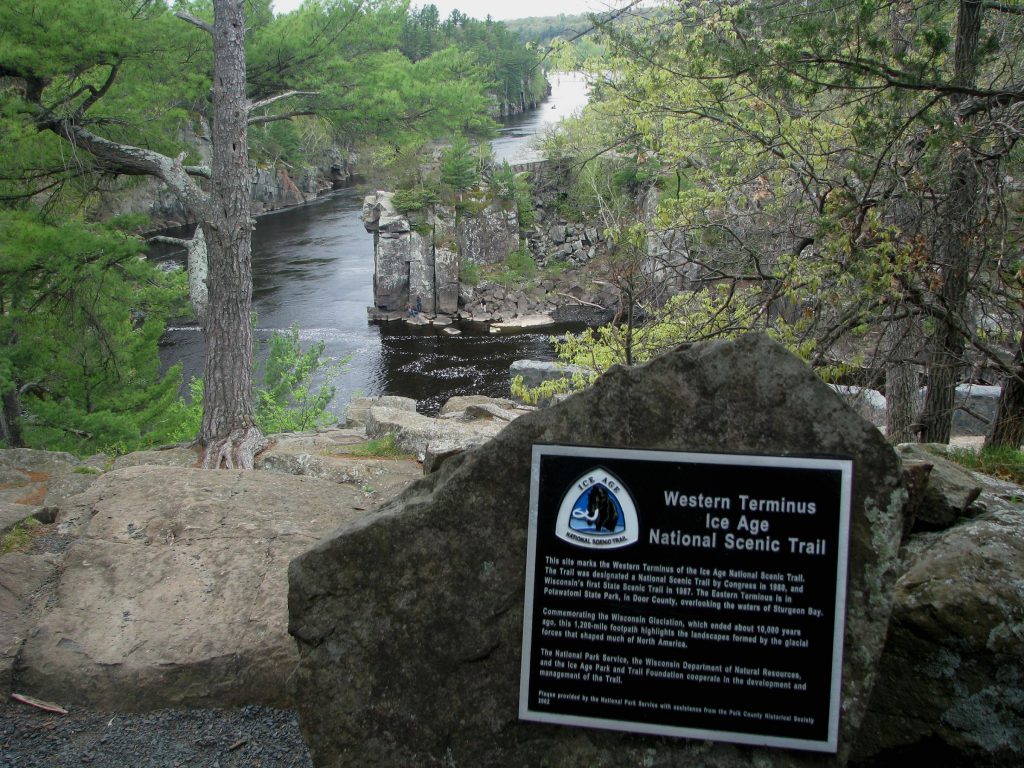State Stewardship Fund Too Costly
Total land purchased, put aside is the size of Delaware. Program should be cut back.

Western Terminus of the Ice Age National Scenic Trail. Photo by MDuchek at English Wikipedia. Photo is in the Public Domain.
In Wisconsin, our natural resources are an essential part of who we are as a state. We value our outdoor traditions and the stewardship program has helped Wisconsinites preserve natural areas and expand access to recreational activities, all of which are beneficial.
Despite being well intentioned upon enactment in 1989, the stewardship program primarily allows the state to purchase land it cannot otherwise afford, through borrowing, pushing costs onto future generations. Initially authorized for a 10 year term, the program provided $250 million in total borrowing authority to the Department of Natural Resources (DNR), but, in recent years, has grown exponentially in size and scope. Unfortunately, similar to many government programs, the stewardship fund has grown beyond its original intent, while leaving Wisconsin in a financial bind.
It is incumbent upon the legislature and the budget writing committee to reform this program, to lower the risk to taxpayers, and to fund our top priorities. In 2015, lawmakers recognized the growing concern and required the DNR to sell 10,000 acres of land as a partial solution to rising costs. While a step in the right direction, further efforts are still needed to combat the excessive debt currently being incurred. The spending is so extreme that Wisconsin taxpayers are currently paying over a half a million dollars in interest every week on debt accumulated from the stewardship fund.
According to the non-partisan Legislative Fiscal Bureau, the stewardship fund, since its creation, has cost Wisconsinites approximately $871 million. Should our colleagues propose to reauthorize the program for an additional 10 years in this budget, the program would need to borrow an additional $332 million, an estimate that does not include interest. In total, with borrowed interest, taxpayers would be on the hook for $533 million. To make matters worse, that figure does not include the current $795 million in existing stewardship debt.
To be clear, if reauthorized, stewardship costs will soar to $1.329 billion dollars. In a budget in which Wisconsin needs significant investment in our roads, we need to seriously evaluate how we prioritize our spending. We must ask ourselves when enough is enough.
Wisconsin State Senator Tom Tiffany represents Wisconsin’s 12th Senate District. Wisconsin State Senator Duey Stroebel represents Wisconsin’s 20th Senate District.
Op-Ed
-
Wisconsin Candidates Decry Money in Politics, Plan to Raise Tons of It
 Dec 15th, 2025 by Ruth Conniff
Dec 15th, 2025 by Ruth Conniff
-
Trump Left Contraceptives to Rot; Women Pay the Price
 Dec 8th, 2025 by Dr. Shefaali Sharma
Dec 8th, 2025 by Dr. Shefaali Sharma
-
Why the Common Council’s Amended Budget is Good Policy for Milwaukee
 Nov 20th, 2025 by Alds. Marina Dimitrijevic and Russell W. Stamper, II
Nov 20th, 2025 by Alds. Marina Dimitrijevic and Russell W. Stamper, II


















Is it really the stewardship fund that is costing Wisconsin taxpayers? Or is it the Republican legislatures’ refusal to take federal aid in the form of transportation and Medicaid dollars? What’s more, much of the lands being protected are wetlands, essential for managing flooding. Besides being part of Wisconsin’s thriving tourism business, these lands ensure natural mechanisms for filtering pollutants from our water and providing breathable air.
For whom do Senators Tiffany and Stroebel work? Wisconsin taxpayers whose families have lived here for generations? Or land speculators who rape and pillage the land for profit and then leave the cost of clean up for Wisconsin taxpayers to shoulder?